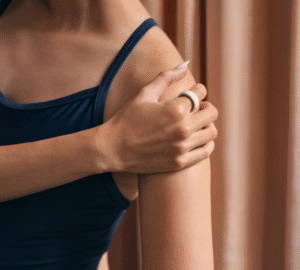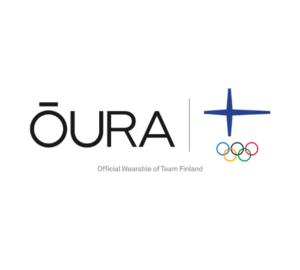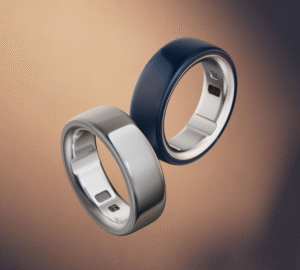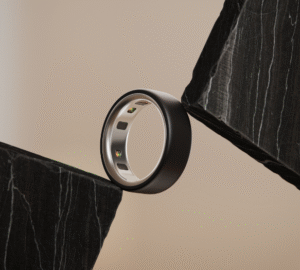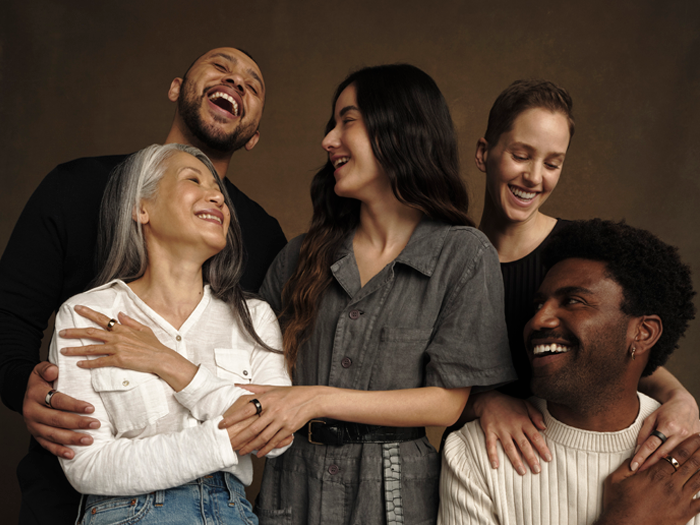At Oura, one of our values is ubuntu, a South African concept of humanity to others. In other words: it’s not me; it’s we. And we believe we’re stronger — and healthier — together. This idea of interconnectedness is exemplified in an exciting new feature in the Oura App: Oura Circles.
Within Circles, Oura members can share their high-level health data (Readiness, Sleep, and Activity Scores), offer encouragement, and track their progress alongside a trusted group of peers in the Oura community. And this is just the start of new functionality we plan to add to Circles over time.
By connecting Oura members from all over the world, Circles provides a much-needed sense of community and social support to empower you on your individual health journey.
Below, hear from members of Oura’s product and science teams about the impetus behind the feature, how to use it, and how it can help you reach your goals.
An “Epidemic of Loneliness”
This new feature comes at a timely juncture in our post-pandemic world. In May 2023, the U.S. Surgeon General, Dr. Vivek Murthy, released an advisory calling attention to the “public health crisis of loneliness, isolation, and lack of connection in our country.”
In the U.S., about half of adults reported measurable feelings of loneliness, even before the COVID-19 pandemic — which only exacerbated the problem of social isolation. And it’s not just the U.S. that is struggling. A global survey found that 33% of adults experience loneliness.
Unfortunately, this epidemic can harm our health in broader ways as well.
“Loneliness has been shown to impact our physical health and well-being,” says Sofia Strömmer, PhD, a Behavioral Scientist at Oura. “Studies show that feeling lonely is associated with higher risks of illness or even death.”
In fact, researchers have found that loneliness is twice as harmful to our physical and mental health as obesity, and equivalent to smoking 15 cigarettes a day. Further research has found that loneliness is associated with:
- An increase in all-cause mortality
- A 32% increase in the risk of stroke
- A 29% increase in heart disease
- A 50% increase in the risk of dementia
- An increased risk of high blood pressure, high cholesterol, metabolic syndrome
- Higher rates of depression, anxiety, and suicide
- Increased likelihood of detrimental lifestyle choices like smoking, being sedentary, and overeating.
- Cognitive issues
In bringing attention to the loneliness epidemic, however, Dr. Murthy also offers a solution: “There is a medicine hiding in plain sight: social connection.”
READ MORE: Researchers Use Oura Data to Evaluate Physiological Responses to COVID-19
Introducing: Oura Circles
Your journey to a healthier you can be challenging; joining a circle can remind you that you’re not alone.
Within the Circles feature, Oura members can create or join virtual “circles” with friends, family, and peers of their choosing — from a running group to healthcare providers. Within these circles, you’ll have the option to share your daily stats: your Sleep, Readiness, and Activity Scores.
The Catalyst Behind Circles
Social connection is an often overlooked, yet incredibly important, part of our holistic health. As Lauren Maymar, Product Insights and Analytics Lead at Oura, explains:
“When we think about health, sleep, exercise, diet, or mental health often come to mind. But, one integral piece is often overlooked and wasn’t a real part of our product: the social dimension. Research has shown that social support can predict health outcomes, ultimately promoting health and decreasing mortality risk. Our team wanted to offer the ability for our users to easily share health information to build connections and strengthen relationships, whether it’s with their partner, family, friends, or other important people in their life.”
For example, with Circles, you may notice that your significant other’s Readiness Score dropped over the past week. Now, you can check in with them and think about ways to support them in their daily life.
On the other hand, you can also use Circles to celebrate wins — you can congratulate your friend who bounced back from a week of poor Sleep Scores, or your training partner who just got the ever-elusive triple crowns!
How to Use Oura Circles
With the Circles feature, you’ll be able to customize how much data you share. From two weeks’ worth of all of your Oura Scores to just your nightly Sleep Score — you have the power to choose what you share, and when. You can create a circle of up to 20 members, and be part of 10 circles at any point. If you decide you want a break, you can leave or rejoin a circle at any time.
You’ll be able to react to the data in your circle by sharing emojis. You can give your friends and family a crown 👑 or fire 🔥 when their scores are high, motivating them with a virtual pat on the back. When their scores are low, you can share a more supportive reaction and perhaps reach out and check that they’re okay.
Learn more about using Oura Circles in our Help Center article.
Tips to Keep in Mind While Sharing Data
Strömmer, a behavioral scientist at Oura, offers the following advice to feel comfortable and secure when sharing your Oura scores:
- Decide for yourself what you want to share and with whom. Do not feel pressured to share something you are not comfortable sharing.
- When people share data with you, treat it with the utmost respect and compassion.
- Take care not to criticize someone about low scores, and don’t hassle them about their habits. Instead try to convey a supportive relationship.
READ MORE: “Talking About Our Scores Is As Routine As Our Morning Coffee:” How Kati and Jon Use Oura Circles
3 Ways Circles Can Help You Reach Your Goals
When you join a circle, there are several ways you can leverage your enhanced social support to help you reach your health goals — whether it’s to lose weight, train for a race, or get better sleep.
1. Accountability: We’re Better Together
Accountability is the obligation or willingness to accept responsibility for your actions.
Being accountable to others can be a powerful motivator to stay committed to your health goals, whether it’s choosing to go to sleep earlier or saying no to that glass of wine. Research shows that accountability encourages people to follow a specified course of action, providing structure and support, as well as a sense of ownership over the process.
“Invite people into your journey, and ask for help,” suggests Strömmer. “In turn, you can be there for your loved ones.” Additionally, when you offer support to others, know that the only thing you need to do is be a supportive and loving sounding board, Strömmer says; you don’t need to know all the answers.
This can help you stay accountable on your health journey, and to keep those you care about accountable too.
READ MORE: Gemma’s Journey to Being Alcohol-Free With Oura
2. Motivation: We’ve Got This
Motivation is having an incentive or a strong desire to do well or succeed in a pursuit.
A study published in the International Journal of Environmental Research and Public Health found that the social influence in online health communities helped to increase motivation and decision-making. The researchers found that the effects of social integration became stronger as the health journey increased.
According to Strömmer, “Friends, teams, and groups provide relatedness and connection with other people and can be part of cooperation and competition mechanics. They enable collaborative and collective actions toward the goal.”
In simple terms, being part of a social group can make you healthier, for longer, by driving your motivation to stay on track.
Plus, your Oura App provides insights into how your body is responding to your lifestyle. You might see in Trends that an evening walk improves your Sleep Score, but you may struggle to stay motivated enough to maintain this habit.
With Circles, you can offer motivation to others, and get it back in return. You and your community may decide to take on an evening walk challenge, and you’ll be able to see who is following through with it. This type of healthy competition has been shown to be one of the most effective drivers of motivation.
3. Connection: We’re All in This Together
Connection is the state of having something in common; to integrate or bring together so as to form a new and larger whole.
Having this support system makes you more likely to make healthier choices while providing emotional support. At the same time, it helps to combat loneliness and its subsequent impact on your health and well-being.
“Sharing bio-data, as with Circles, can provide a sense of connection where people might not otherwise be able to connect very often,” Strömmer says. “For instance, you can form a circle with family who may live long distances away, and still feel connected in knowing they are well, and being able to reach out if they might not be.”
READ MORE: Oura Supports This Mother & Daughter on Their Health Journeys
About the Oura Experts
Sofia Strömmer, PhD, is a behavioral scientist at Oura. She is from Finland, but lived in the UK for 16 years before moving back to join Oura. She is a Chartered Psychologist and has a PhD in Psychology focusing on the motivational determinants of exercise behavior. Her area of expertise is in motivational aspects of health behavior change and how motivation for health behaviors arises and is maintained. Before joining Oura, Sofia worked as a researcher at the Medical Research Council at the University of Southampton.
Lauren Maymar leads Research & Analytics for Oura’s Software Product Team, and is the Product Manager for Circles.







